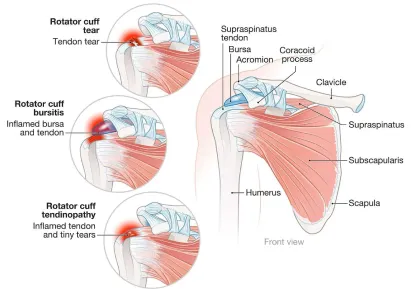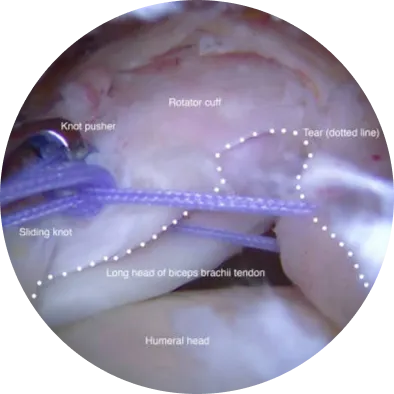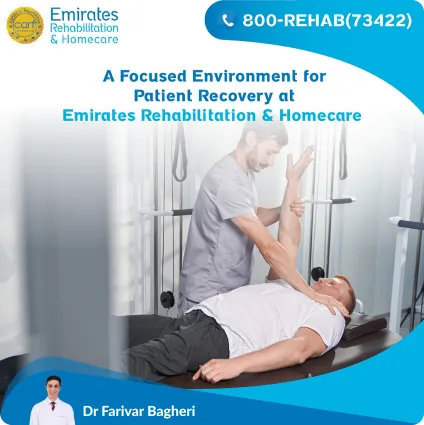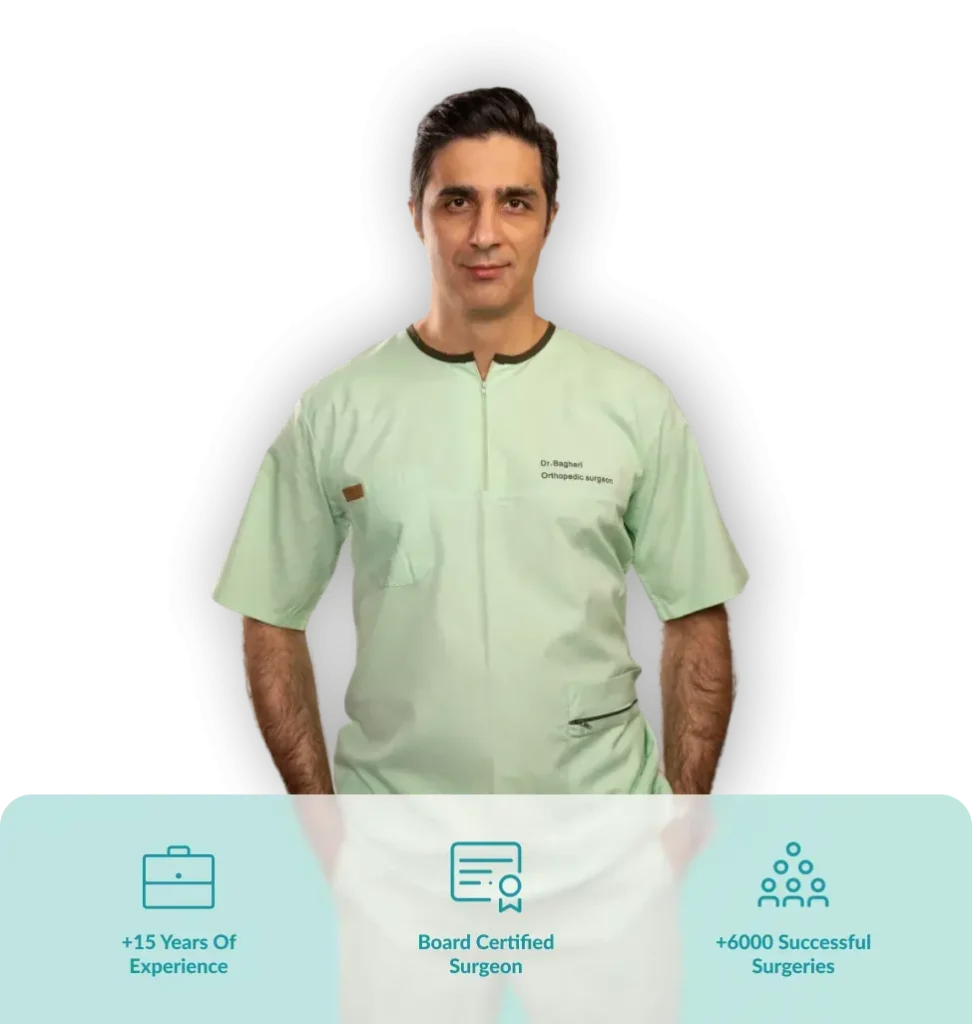Rotator Cuff Repair
In the heart of Dubai, many within the 40-60 age range lead vibrant, active lifestyles. Yet, this dynamism comes with its wear and tear, particularly on the shoulders, leading to a common ailment: rotator cuff injuries.
I understand the critical role your shoulders play in daily life, and I’m here to guide you back to your active self with cutting-edge rotator cuff repair.
Understanding Your Rotator Cuff
The rotator cuff, a crucial group of muscles and tendons stabilizing the shoulder, can suffer from tears due to age-related degeneration or physical activity. Symptoms often include persistent shoulder pain, weakness, and difficulty in performing overhead activities, signaling the need for professional intervention.

symptoms of a rotator cuff tear
- shoulder pain, weakness, and difficulty with overhead or reaching activities
- Decreased shoulder range of motion
Diagnosis of rotator cuff injury:
- Clinical Evaluation
There are several diagnostic tests that are performed by a specialist doctor like “Jobe test” “external rotation test” and “lift-off test” - Imaging Study
- Shoulder X-ray
- Ultrasound
- MRI
What are the causes of a rotator cuff tear?
A rotator cuff tear can manifest as a result of either acute injuries or, more commonly, chronic conditions.
In chronic cases, the tendons of the rotator cuff may adhere or stick over time, leading to a gradual process of degeneration. This degeneration ultimately culminates in the rupture of the tendon.
While acute injuries can trigger a tear, the chronic nature of this condition highlights the significance of long-term wear and tear on the tendons, emphasizing the importance of preventive measures and early intervention in maintaining shoulder health.
What are common treatments for rotator cuff injuries?
non operative management of rotator cuff injury:
- Ice
- Reducing activities in which the hand goes above the head
- Physical therapy
- Glucocorticoid
- injection
- Platelet-rich plasma therapy (PRP)
- Stem cell therapy
surgical treatment of rotator cuff injury:
- arthroscopic
- open surgeries

Journey to Recovery after rotator cuff repair
Recovery and rehabilitation are key to a successful outcome. Our comprehensive support system, including tailored physiotherapy, ensures a smooth transition back to daily activities. Through success stories and patient testimonials, we showcase the real-life impacts of our care, providing you with confidence in your recovery journey.


How long does it take to return to normal life after rotator cuff tearing treatment?
The timeframe and capacity to return to sport and heavy labor following a rotator cuff tear depends on many factors, including the:
- extent and type of injury
- response to treatment
- demands placed on the shoulder by the sport or work in question
For patients with relatively sedentary desk jobs, only one week of rest may be necessary, while patients with jobs involving heavy overhead lifting or those who participate in strenuous overhead sports may require six months or longer.
Patients who respond well to physical therapy may return when symptoms subside and they are able to perform the required tasks. Following surgical repair, the timeframe for returning to activity depends upon the procedure performed.


